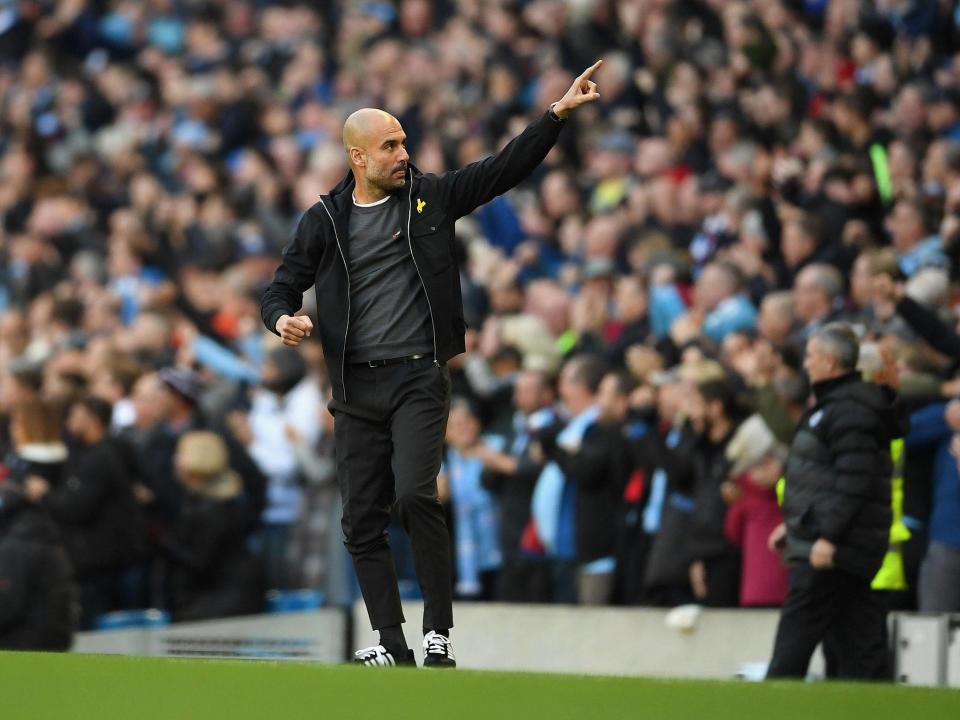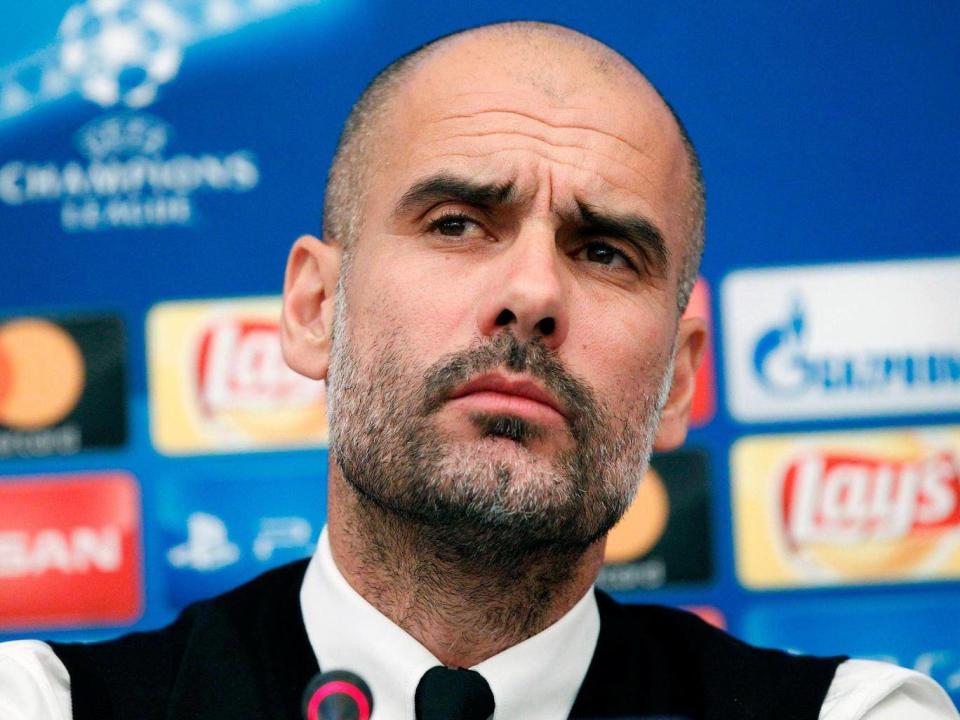Pep Guardiola returns to Leicester with his complex philosophy now set in stone at Manchester City

It was in the wake of Manchester City’s ignominious defeat away at Leicester last season - a 4-2 drubbing at the hands of the then Premier League champions - that Pep Guardiola launched a typically impassioned defence of his footballing philosophy.
“I'm not a coach for the tackles. So I don't train the tackles. What I want is to try to play good, score goals, arrive more.” The admission that he doesn’t “train the tackles” raised an eyebrow or two among the gathered journalists present at the King Power Stadium on that ill-fated day.
For a third successive match, City had failed to win. Naturally, then, the wheels were off. The spotlight was switched to Guardiola and his refusal to adapt to the harsh, ugly realities of the Premier League. If he was to survive in this league then he needed to toe the line and embrace English football in all its garish glory.
Nearly one year on and City returns to a stadium that bore witness to what Guardiola described on Friday as “one of the lowest” points in his budding English career. Ever the perfectionist, the 46-year-old’s commitment to his own philosophy has not waivered since. Indeed, that ‘tackle’ comment remains true as ever. Only Bournemouth and Burnley have made few tackles than City this season while the club rank 17th for tackles won across the same time period.
The caveat here is that as the best team in the league, capable of dominating possession from start to finish, there’s simply less need to challenge for the ball with a good old fashioned, bone-crunching tackle. For Guardiola, his men and the ball are one: a fluid, seemingly interconnected organism capable of transporting that orange and purple sphere from one end of the pitch to the other in a blink of the eye.
So what has changed since City were memorably dispatched by Claudio Ranieri’s struggling Foxes last December? As the above statistics would suggest, not much, but at the same time City have come on leaps on bounds since the Catalan first arrived through the doors of the Etihad in the summer of 2016.
Like a fine French wine, Guardiola’s ideas have matured with time and it’s only in these past three months that these complex notions have started to crystallise in the blue side of Manchester. “I think his (Guardiola's) strength is that he has been extremely consistent from the first day,” Vincent Kompany recently told the Daily Mail. “I think what's changed is that the ideas have now come across. He's the same now as he was on day one.”
Indeed, players better understand their roles within the starting XI, as well as the roles of their team-mates. This synergy has made for a devastating force that no opposition has yet to counteract.
Of course, summer recruitment has helped. City have tightened their defence – although critics will correctly note that it’s still not the finished article – while an imbued sense of togetherness among the first team has brought greater direction and focus to Guardiola’s project.

Manchester City are a side on the path to domestic and European glory – there’s no doubt of that. Even so, Guardiola has insisted his side still have scope to improve.
“It’s not about the breaking of records,” Guardiola said. “We can do better, we can improve. We are here to do better than the day before. I’m so glad what we did against Arsenal. We came from a tough game in Napoli. We can do better. We still have a lot of things we can do better.”
If and when Guardiola is finally satisfied with his Manchester City team, it’ll be an ominous day for the Premier League.

 Yahoo Sports
Yahoo Sports 